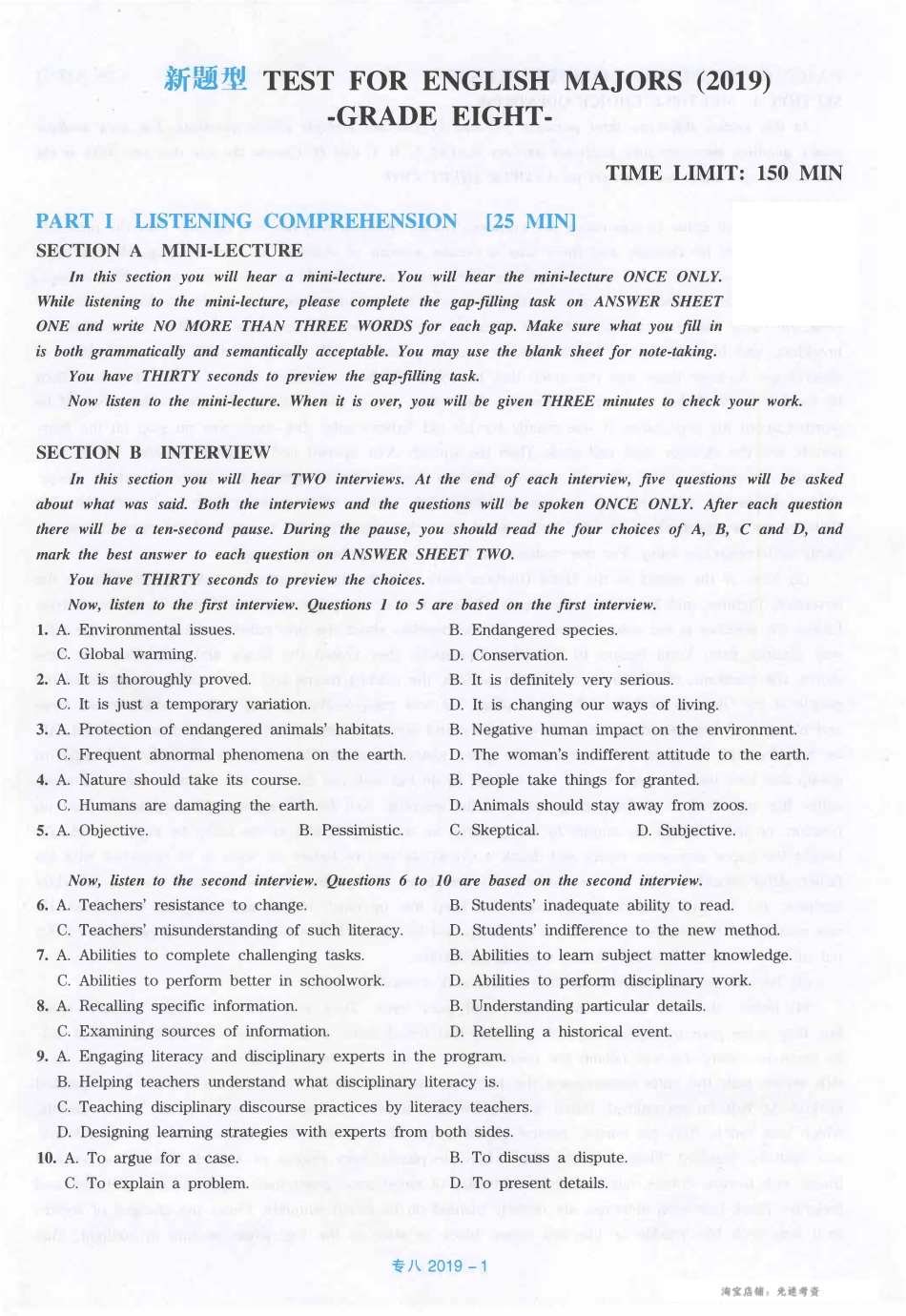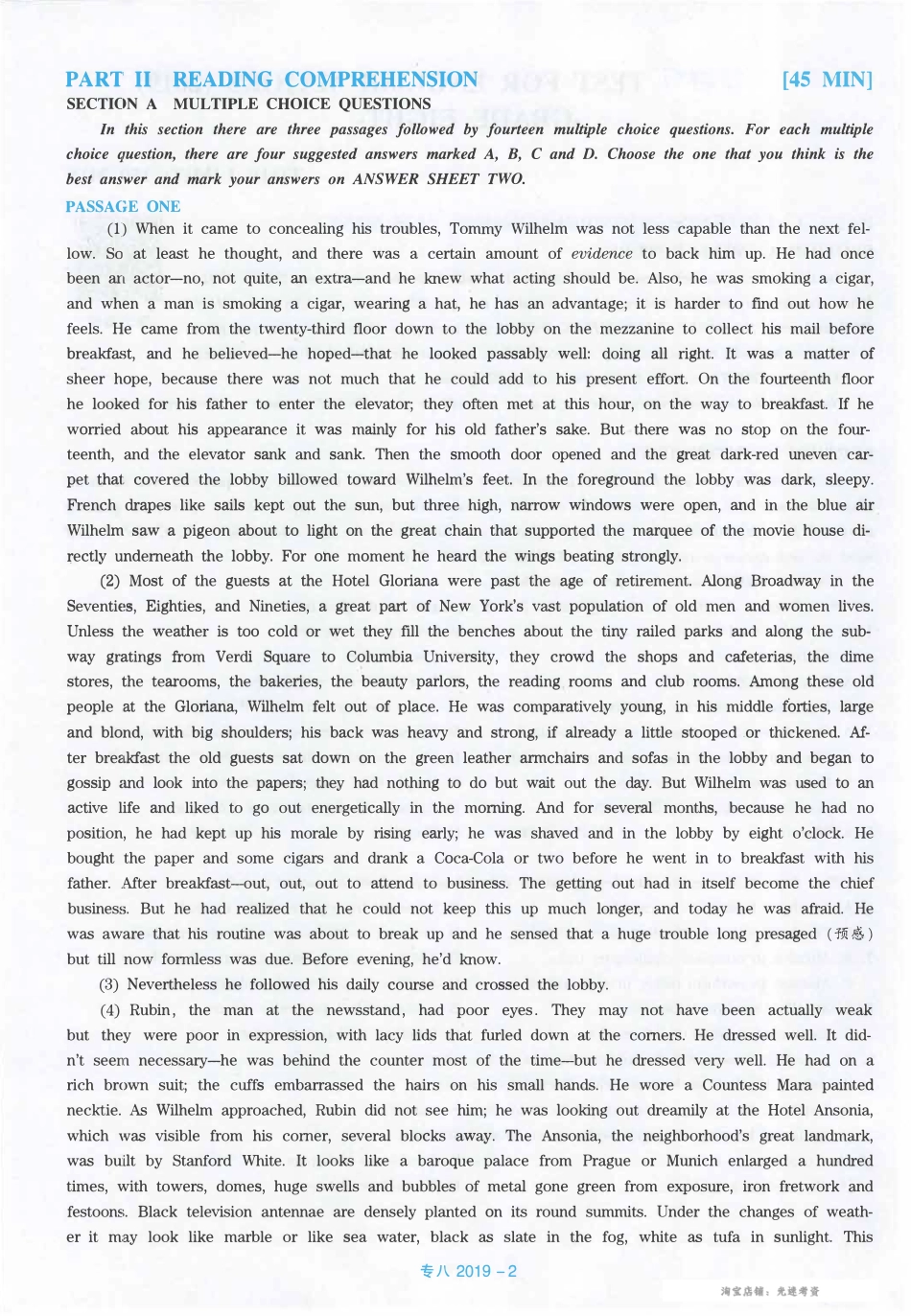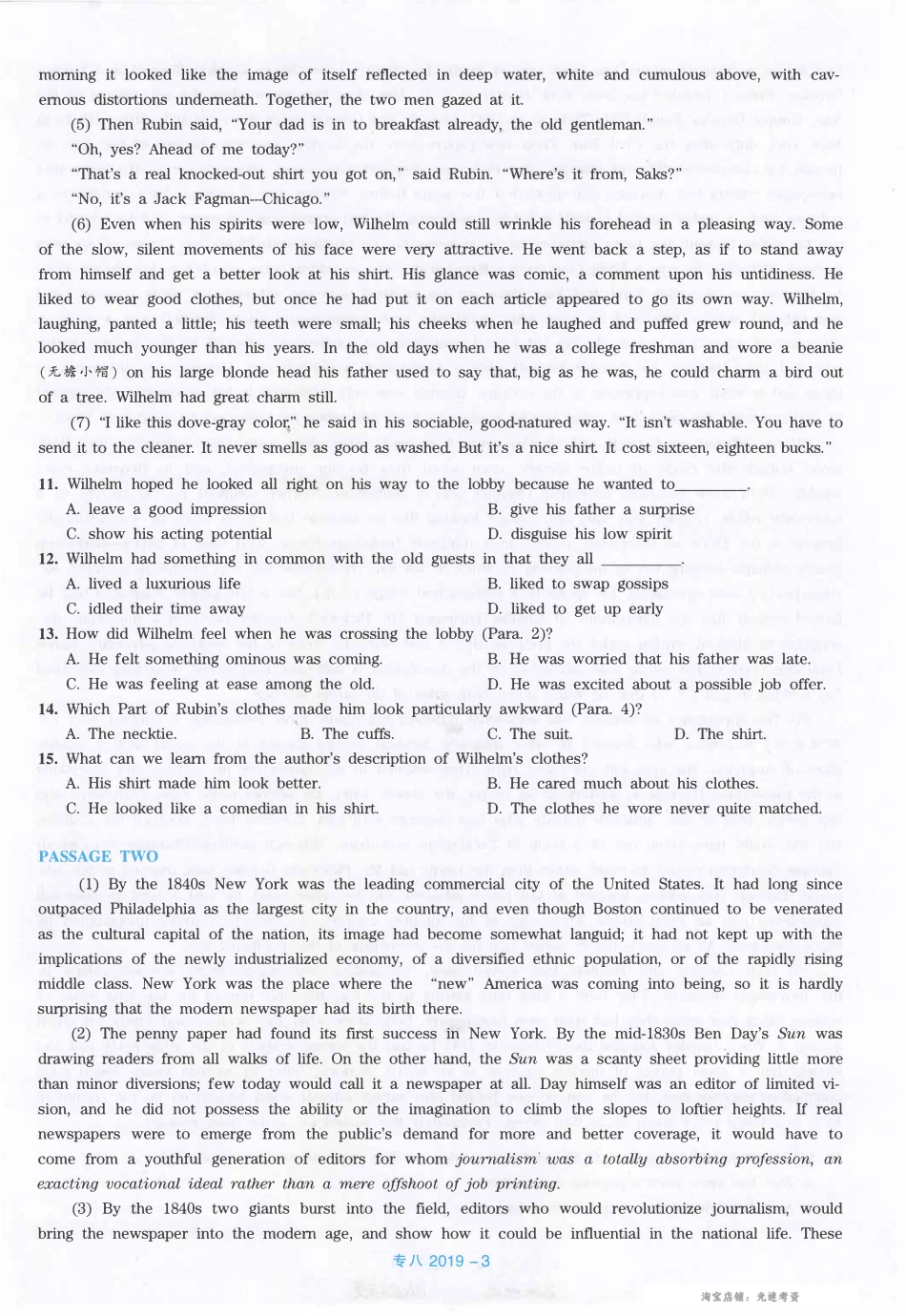mR!i� TEST FOR ENGLISH MAJORS (2019) -GRADE EIGHT-TIME LIMIT: 150 MIN PART I LISTENING COMPREHENSION SECTION A MINI-LECTURE [25 MIN] In this section you will hear a mini-lecture. You will hear the mini-lecture ONCE ONLY. While listening to the mini-lecture, please complete the gap-filling task on ANSWER SHEET ONE and write NO MORE THAN THREE WORDS for each gap. Make sure what you fill in is both grammatically and semantically acceptable. You may use the blank sheet for note-taking. You have THIRTY seconds to preview the gap-filling task. Now listen to the mini-lecture. When it is over, you will be given THREE minutes to check your work. SECTION B INTERVIEW In this section you will hear TWO interviews. At the end of each interview, five questions will be asked about what was said. Both the interviews and the questions will be spoken ONCE ONLY. After each question there will be a ten-second pause. During the pause, you should read the four choices of A, B, C and D, and mark the best answer to each question on ANSWER SHEET TWO. You have THIRTY seconds to preview the choices. Now, listen to the first interview. Questions I to 5 are based on the first interview. 1. A. Environmental issues. B. Endangered species. C. Global wanning. D .. Conservation. 2. A. It is thoroughly proved. B. It is definitely very serious. C. It is just a temporary variation. D. It is changing our ways of living. 3. A. Protection of endangered animals' habitats. B. Negative human impact on the environment. C. Frequent abnormal phenomena on the earth. 4. A. Nature should take its course. C. Humans are damaging the earth. 5. A. Objective. B. Pessimistic. D. The woman's indifferent attitude to the earth. B. People take things for granted. D. Animals should stay away from zoos. C. Skeptical. D. Subjective. Now, listen to the second interview. Questions 6 to 10 are based on the second interview. 6. A. Teachers' resistance to change. B. Students' inadequate ability to read. C. Teachers' misunderstanding of such literacy. 7. A. Abilities to complete challenging tasks. C. Abilities to perform better in schoolwork. 8. A. Recalling specific information. D. Students' indifference to the new method. B. Abilities to learn subject matter knowledge. D. Abilities to perform disciplinary work. B. Understanding particular details. C. Examining sources of information. D. Retelling a historical event. 9. A. Engaging literacy and disciplinary experts in the program. B. Helping teachers understand what disciplinary literacy is. C. Teaching disciplinary discourse practices by literacy teachers. D. Designing learning strategies with experts from both sides. 10. A. To argue for a case. C. To explain a problem. B. To discuss a dispute. D. To present details. 1i- J\. 2019 -1 PART II READING COMPREHENSION SECTION A MULTIPLE CHOICE QUESTIONS [45 MIN] In this section th...


